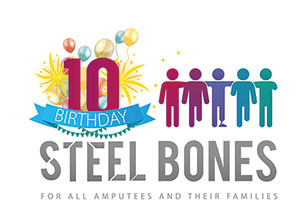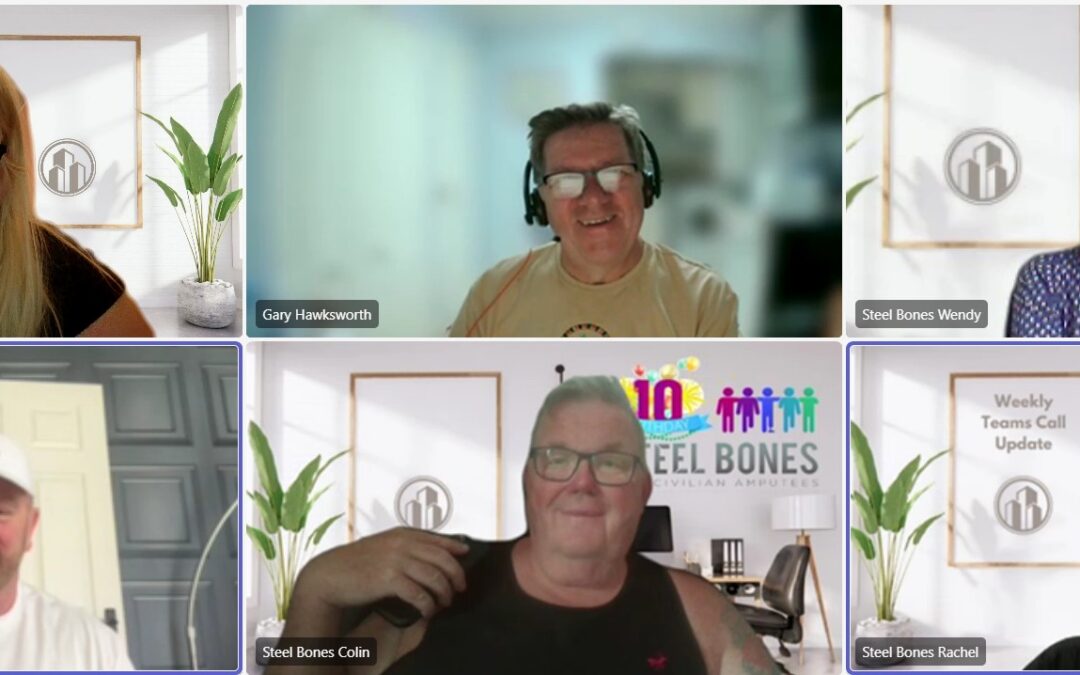A Lifeline, Not Just a Contact
As mentor Wendy explains, being a family mentor means “being that one-to-one contact where families can phone or email for support, advice or just a chat.” Often, new amputees don’t need complex medical input — they need someone who has been there, who can listen without judgement, and who can reassure them that life is not over.
Family mentors are the first point of contact for amputees joining Steel Bones. If they don’t know an answer, they make it their mission to find someone who does. That might mean guidance on benefits, tips for daily living, or simply reassurance that struggling is normal.
The Power of Lived Experience
What makes family mentors unique is that every single one of them has lived the amputee journey — either personally or as a close family member. Danny shared how, after his second amputation, it was the peer support from Steel Bones that got him through. Today, he uses humour and honesty to encourage others: “Sometimes it’s just a little chat that they appreciate. A problem shared is a problem halved.”
For Colin, becoming a mentor transformed his own life: “I was sitting in a chair doing nothing, didn’t want to engage with anybody. Steel Bones changed everything. Now I’m helping others.” His story is proof that mentoring gives as much back to the volunteer as it does to those receiving support.
Small Steps, Big Impact
Mentors often remind new amputees to set small, achievable goals. As Danny puts it, “Don’t set yourself a massive goal and get downhearted. Take it bit by bit. Keep that sense of humour.” This practical advice, shared from experience, is often more powerful than any professional leaflet or handbook.
Sometimes, the support goes far beyond conversation. Wendy described an amputee she helped who finally had the courage to choose amputation — and later phoned in tears to say her life had been changed for the better. These stories show the profound difference that steady, lived-experience mentoring can make.
Not Just for Amputees
Family mentors don’t just support amputees — they support their loved ones too. Partners, parents, and children all feel the impact of limb loss. Mentors make sure families know they are not alone in their worries, and that they too are part of the Steel Bones community.
Supporting the Supporters
Of course, mentoring can be emotionally demanding. That’s why Steel Bones provides wellbeing sessions, one-to-one support for mentors, and flexibility when volunteers need to step back. As Volunteer Coordinator Rachel explains, “Our volunteers are the lifeblood of Steel Bones.” Without them, the charity could not reach as many people as it does.
A Privilege to Serve
Perhaps Wendy summed it up best: “It’s a privileged role to be able to say to someone, you’re going to be all right. To help somebody change their life is the most rewarding thing ever.”
In the UK, over 14,000 people become amputees each year. Steel Bones already supports nearly 1,500 of them, but there are many more waiting for reassurance, guidance, and hope. Family mentors are at the heart of that mission — proof that sometimes, the best medicine is a voice on the other end of the phone saying, “You’re not alone. You’re part of our family now.”


Recent Comments